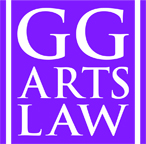LAW & DISORDER
Performing Arts Division
February 22, 2023

CALL TO ACTION!
ARTS COMMUNITY ASSEMBLE!
 We have until MARCH 13, 2023 to file public comments and objections to USCIS’s proposal to artist visa petition fees to nightmarish levels.
We have until MARCH 13, 2023 to file public comments and objections to USCIS’s proposal to artist visa petition fees to nightmarish levels.
As a reminder, United States Citizenship and Immigration Services (USCIS), the consummate embodiment of incompetency, capriciousness, and paranoia spawned from the feted nether loins of the United States Department of Homeland Security (DHS), has proposed the following:
>>>The standard processing fee for O-1 and O-2 petitions would increase from $460 to $1655 per petition.
>>>The standard processing fee for P petitions would increase from $460 to $1615 per petition.
>>>O-2, P-1, and P-1S petitions would be limited to 25 people per petition.
>>>The Premium Processing Fee would remain at $2500 per petition, but the petition would be processed in 15 business days as opposed to the current policy of 15 calendar days.
If these proposals are implemented:
- It would cost an individual performer in any field of arts and entertainment $1615 plus an applicable union consultation fee of $250 – $1000 to file a visa petition and then another $190 to apply for a visa stamp at a U.S. Consulate.
- It would require a typically sized orchestra or other large group of 70 members (including staff/crew) to file 4 petitions at a total cost of $6460 in USCIS filing fees, plus union fees, and visa stamp application fees. If premium processing were required, that would cost an additional $10,000 (4 petitions x $2500).
THESE FEES HAVE NOT GONE INTO EFFECT…YET.
THEY HAVE MERELY BEEN “PROPOSED.”
However, we have only a short window to file objections.
Whilst national and international organizations throughout the arts and entertainment industry are preparing comments and objections on behalf of their members, it is just as critical that everyone from the entire biosphere of arts and entertainment—classical, jazz, theatre, ballet, rock, hip-hop, circus, multi-media, druidic poets, zither players, agents, presenters, promoters, venues, and even weary arts lawyers, regardless of where you are located in the world—submit their own individual, personal comments and objections as well. Now is not the time to hope others in your field speak for you. Also, other industries and sectors, such as technology, sports, and finance are more than willing to pay additional fees to get the people they want.
We’re on our own here folks.
We need to inundate USCIS with a sufficient deluge of objections and comments that it will require an ark for a haggard band to survive and repopulate their cubicles. We need to let them know we are here and what’s at stake.
Comments can be filed online through the Federal Register Portal by the extended deadline of March 13, 2023.
(Please remember that any comments submitted through the Federal Register portal will be viewable by the public. So, while trendy these days, avoid threats of violent reprisals or uprisings.)
When commenting, please don’t just object or make generalized remarks about the importance of the arts, culture, and rainbows. They don’t care. It is essential to provide specific examples on the actual, real life impact these proposals will have, such as:
- Artist X comes each year to perform at the Y International Festival. If these fees are implemented, the artist will not be able to afford to come and, without international artists, the festival will close.
- Group X is booked regularly by venue Y. It sells out, bringing in $___ revenue to the venue and the community. If the group cannot afford to enter, this will all be lost.
- Benevolent Foundation X underwrites performers from diverse cultures around the world to perform for children and others in U.S. communities that would otherwise not get exposed to them. If these fees are implemented, there will not be sufficient funding to continue these programmes.
- Why is USCIS proposing fee increases without committing to any improvements to the visa process to make it more efficient, consistent, and reliable?
For additional ideas and suggestions on comments, the Performing Arts Visa Working Group (PAVWG), an ad hoc coalition of national and international performing arts organizations led by the League of American Orchestras dedicated to improving opportunities for international cultural exchange, CLICK HERE.
PAVWG is intentionally not providing any templates or forms because we need USCIS to read each comment and not discard form-letter entries.
In addition to submitting comments and objections to USCIS, U.S. Citizens should share them with their Senators and members of Congress as well—except, perhaps, those of you in Florida, Texas, Georgia, and other states whose representatives will just view the fee increases as a nifty way to discourage the demonic hordes of non-U.S. artists who would otherwise poison the U.S. with their fiendish ideas of affordable health care, paid vacations, clean water, and similar signs of the approaching apocalypse of the end times. We recommend using THIS PLATFORM created by our friends at the League of American Orchestras to paste a copy of your comments to share with your U.S. Senators and member of the U.S. House of Representatives.
Lastly, we are also asking everyone to spread the word on whatever social media platforms you frequent with the tag #OpposeTheFeeIncrease
Coming Attractions
 Hopefully, in March we’ll be able to focus on topics other than artist visas, including recent updates on non-compete clauses, handling engagement fee deposits, and other important, but less volatile matters.
Hopefully, in March we’ll be able to focus on topics other than artist visas, including recent updates on non-compete clauses, handling engagement fee deposits, and other important, but less volatile matters.
Deep Thoughts

Dr. Seuss, Horton Hears A Who
Let us know what you’d like to hear more about.
Send us an email, post on Facebook, mail us a letter, dispatch a messenger, raise a smoke signal, reach out telepathically, or use whatever method works for you.
 GG Arts Law provides a comprehensive range of legal services and strategic support for the performing arts, including: Artist Visas, Taxes, and Touring; Rights & Licensing; Negotiations & Representation; Contracts; Business & Non-Profit Organization & Management; Project Management; and Strategic Consulting & Planning.
GG Arts Law provides a comprehensive range of legal services and strategic support for the performing arts, including: Artist Visas, Taxes, and Touring; Rights & Licensing; Negotiations & Representation; Contracts; Business & Non-Profit Organization & Management; Project Management; and Strategic Consulting & Planning.
OFFICIAL LEGALESE:
THIS IS NOT LEGAL ADVICE!
The purpose of this blog is to provide general advice and guidance, not legal advice. Please consult with an attorney familiar with your specific circumstances, facts, challenges, medications, psychiatric disorders, past-lives, karmic debt, and anything else that may impact your situation before drawing any conclusions, deciding upon a course of action, sending a threatening email, filing a lawsuit, or basically doing anything that may in any way rely upon an assumption that we know what we are talking about or one size fits all!



